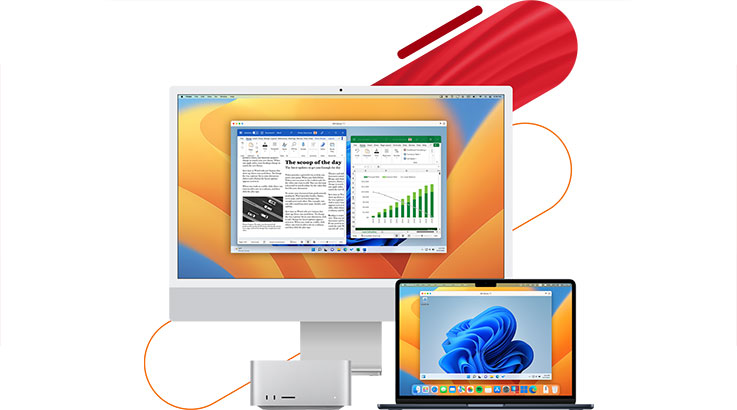

- #UBUNTU 18 ON PARALLELS 13 HOW TO#
- #UBUNTU 18 ON PARALLELS 13 INSTALL#
- #UBUNTU 18 ON PARALLELS 13 UPDATE#
- #UBUNTU 18 ON PARALLELS 13 FULL#
Ubuntu-18.04.2-preinstalled-server-armhf+raspi2.manifest Ubuntu-18.04.2-preinstalled-server-armhf+.zsync Ubuntu-18.04.2-preinstalled-server-armhf+ Ubuntu-18.04.2-preinstalled-server-arm64+raspi3.manifest Ubuntu-18.04.2-preinstalled-server-arm64+.zsync Ubuntu-18.04.1-preinstalled-server-armhf+raspi2.manifest Ubuntu-18.04.1-preinstalled-server-armhf+.zsync Ubuntu-18.04.1-preinstalled-server-armhf+ Ubuntu-18.04-preinstalled-server-armhf+raspi2.manifest If you need help burning these images to disk, see the Image Burning Guide.
#UBUNTU 18 ON PARALLELS 13 FULL#
If you require LVM, RAID, multipath, network vlans, or network interface bonding during the installation if you need to reuse existing partitions on your installation disk or for support for other architectures besides AMD64/EM64T, see the alternative images location.Ī full list of available files, including BitTorrent files, can be found below.
#UBUNTU 18 ON PARALLELS 13 INSTALL#
There is one image available: 64-bit PC (AMD64) server install image Choose this if you have a computer based on the AMD64 or EM64T architecture (e.g., Athlon64, Opteron, EM64T Xeon, Core 2). It will not install a graphical user interface. The server install image allows you to install Ubuntu permanently on a computer for use as a server. There is one image available: 64-bit PC (AMD64) desktop image Choose this if you have a computer based on the AMD64 or EM64T architecture (e.g., Athlon64, Opteron, EM64T Xeon, Core 2). You will need at least 1024MiB of RAM to install from this image. This type of image is what most people will want to use.

The desktop image allows you to try Ubuntu without changing your computer at all, and at your option to install it permanently later. As such, you should always verify the contents of the packages you install, and scanning them for malicious code.Ubuntu is distributed on two types of images described below. While PPAs do offer us extended packages, they are also managed by a third-party. By expanding on the software available we are able to more easily install packages that can’t be found. PPA’s are extremely helpful with installing software not officially supported by an Ubuntu release’s package repository.
#UBUNTU 18 ON PARALLELS 13 HOW TO#
You also learned how to install PHP 7.4 modules to support applications like WordPress. In this tutorial, you learned how to install PHP 7.4 on Ubuntu using PPAs. sudo apt-get install php7.4-mysql Conclusion Each module supports a specific version of PHP, and in order to install the modules for PHP 7.4 we must specify the version of PHP.įor example, to install the MySQL module for PHP 7.4 you would need to run the following command. There are a lot of modules available for PHP, from connecting to a MySQL database server to parsing XML files. sudo apt-get install php7.4 Installing PHP 7.4 Modules For example, to install PHP 7.4 you would put php7.4 as the package name. To install PHP version from the PPA we use the following package name convetion phpX.X.
#UBUNTU 18 ON PARALLELS 13 UPDATE#
Update your repository cache to ensure packages from the ondrej/php repository are available. It provides major releases of PHP for older Ubuntu versions, which is how you will install PHP 7.4 onto the operating system.Īdd the PPA to your package repository list. Add PPA for PHPĪ PPA by the name of ondrej/php offers PHP packages for Ubuntu. For Ubuntu, the most common way of adding community managed repositories is with Launchpad’s PPA support (Personal Package Archives).Ī PPA for Ubuntu is available that specializes in PHP, by providing major new releases to older version of the operating system. In order to install later versions of packages like PHP we need to add a new repository. Packages are only updated with bug and security releases. Major updates are reserved for major OS releases, which is how to operating system remains stable. The Ubuntu 18.04 package repository limits which version of packages are available. In this tutorial, you will learn how to install PHP 7.4 onto Ubuntu 18.04 for better performance in your applications.


 0 kommentar(er)
0 kommentar(er)
